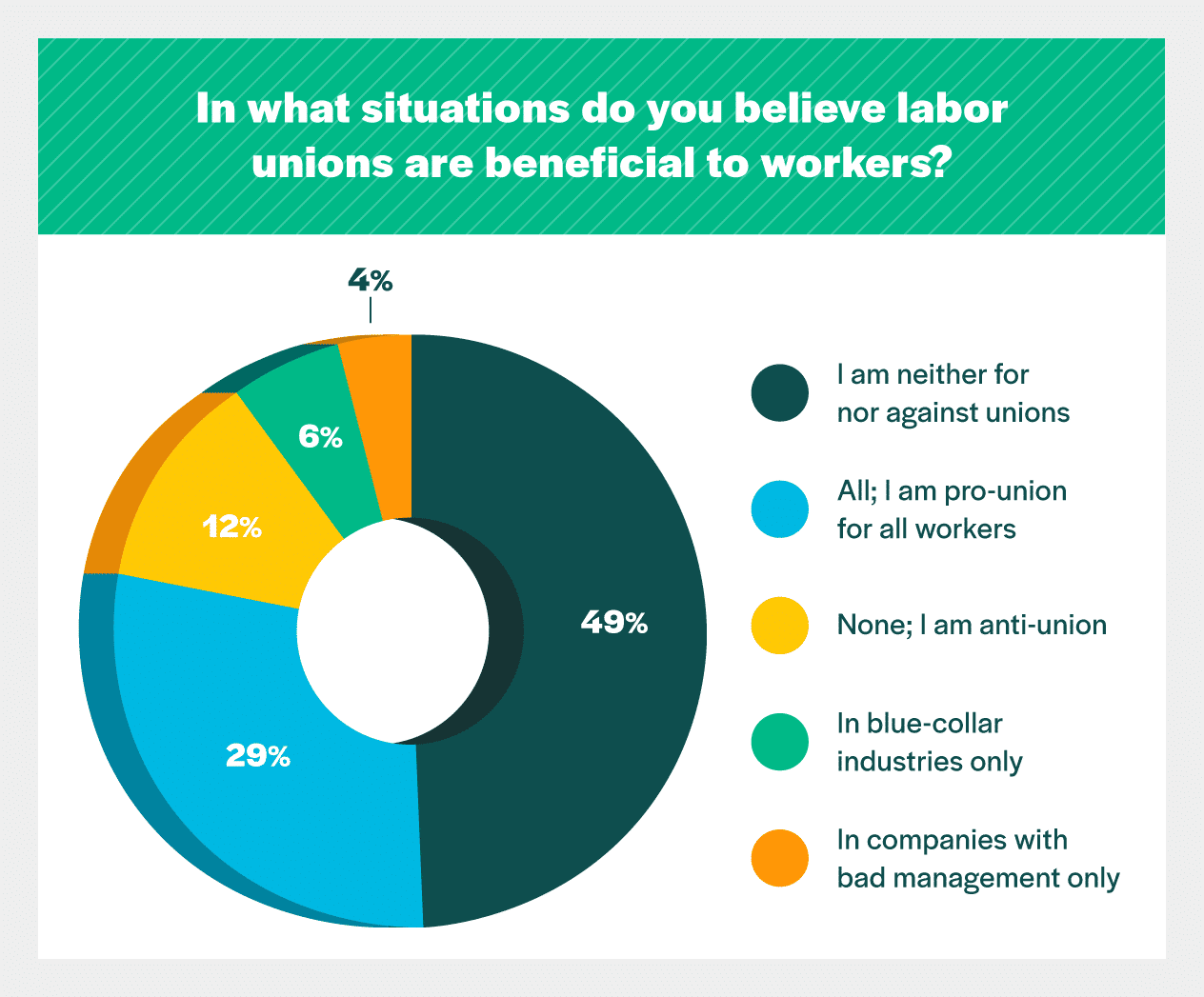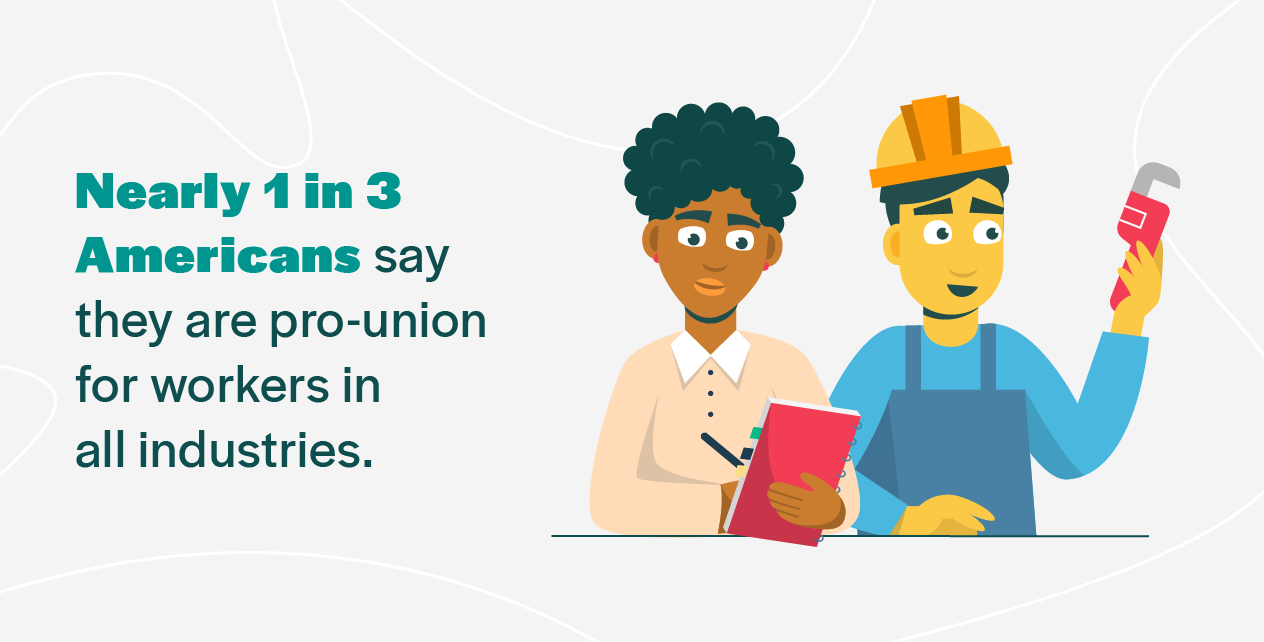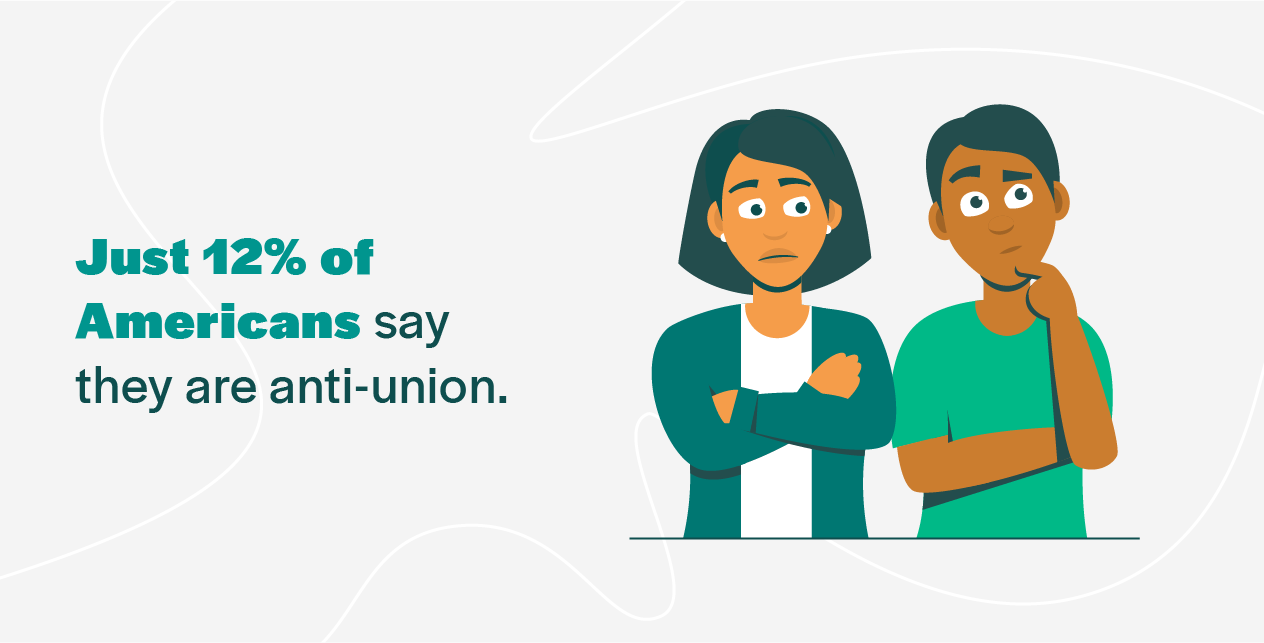Labor unions have been around since the late 18th century. But in recent years, industries not typically known for union membership have seen an uptick in interest in employee activism.
Gawker Media became the first digital media company with a ratified union contract in 2016, ushering in an era of labor organization in the industry that included HuffPost, Salon, Slate, VICE, BuzzFeed, Vox Media, Bustle Media Group, and The New Yorker. With unionization efforts in progress at both Google and Amazon, it looks like big tech is likely to be the next industry to see a significant organizing movement among employees.
Many people still associate the word “union” with stereotypical images of manual laborers and factory workers. For them, organizing was the only means to avoid abuse, physical harm, and even — in cases like the famous Triangle Shirtwaist Factory Fire — death. However, union efforts can also be beneficial in contemporary workplaces, helping workers in all industries negotiate better benefits, greater job security, and higher salaries.
To find out what most Americans think about labor unions today, we asked 1,500 people whether they’re for or against unionization in different employment scenarios.
How Do Unions Help Workers?
Unions can protect and benefit workers in all sorts of industries and in many different ways. The most well-known benefits of a union include protection against unsafe or hostile work conditions and bad or abusive bosses.
But the main benefit unions provide is collective bargaining power, which enables workers to negotiate with a company’s owners and managers. This power to negotiate can help achieve:
- Higher wages
- Better benefits
- Accommodations for parents, caregivers, and people with disabilities
- More equitable treatment for minority workers
- Protections in case of layoffs
Some unions even offer health care, allowing workers to access insurance even if they’re unemployed.
Nearly 1 in 3 Support Unions in All Cases
We found that 29%, or nearly a third, of respondents said they’re pro-union in all cases, not just in blue-collar industries or companies with bad management.

Just 12% said they’re flatly against unions, while another 10% said they’re for unions only in particular circumstances. Just under half (49%) said they were neutral, neither for nor against unions as a concept.
The breakdown differed a fair amount between male and female respondents. Among women, just 7% said they were anti-union, while 32% said they supported unions for all workers. By comparison, 18% of men said they were against, and 25% said they were for unions in all situations.
If the general population were a workforce, these results would be nearly enough for it to unionize. The National Labor Relations Board conducts a union vote once 30% of a workforce has signed union cards or a petition to organize.
10% Believe Unions Are Only Necessary Under Harsh Working Conditions
Two responses were designed to identify how many people subscribe to the belief that unions are only necessary or beneficial when workers face harsh conditions. About 6% said they believed unions were only necessary for blue-collar workers, while 4% said they’re only beneficial in situations plagued by bad management.
In reality, unions aren’t designed just to fix hostile work conditions. They’re also meant to help improve upon existing positive elements of a company environment and protect workers in unexpected situations like sudden layoffs or major unemployment events (like COVID-19).

12% Are Anti-Union in All Cases
While the benefits of unionization are plenty, many people believe the negatives outweigh the positives. Among respondents, 12% said that they’re anti-union regardless of the scenario.

Managers, executives, and owners are most likely to hold a negative view of unions since unions have the power to force bosses to compromise. Even bosses who treat employees well and pay them fairly may hold reservations about unions, concerned about worst-case scenarios like impossible demands and contentious communications.
How to Respond Positively When Your Workers Want to Unionize
No matter how you feel about your workers organizing, keeping your response measured and positive is key to maintaining open communication, morale, and productivity in the workplace.
If you don’t want your employees to unionize, you can tell them that — as long as you don’t do or say anything to try to prevent their organization effort from moving forward. (That’s illegal.)
However, you can communicate the company’s position on the issue while making clear that each employee is free to make their own decision without fear of retaliation. You can also open a dialogue with workers about what they would ask for with a union’s help, then discuss how you can create a workplace where employees don’t feel the need to organize.
Note that unions provide lots of benefits to bosses that might put you on the pro-union side. Organizing efforts can result in better communication, increased productivity, and improved morale among employees.
Final Word
Whether or not your company has a union or is considering forming one, there’s no denying labor organization and employee activism are becoming more prevalent topics of discussion in the United States. Topics like universal health care, COVID-19 relief, minimum wage laws, infrastructure, and even the Green New Deal are all closely related to employee rights.
A better understanding of what unions are and how they work can benefit everyone, from workers to bosses to politicians to activists and beyond.